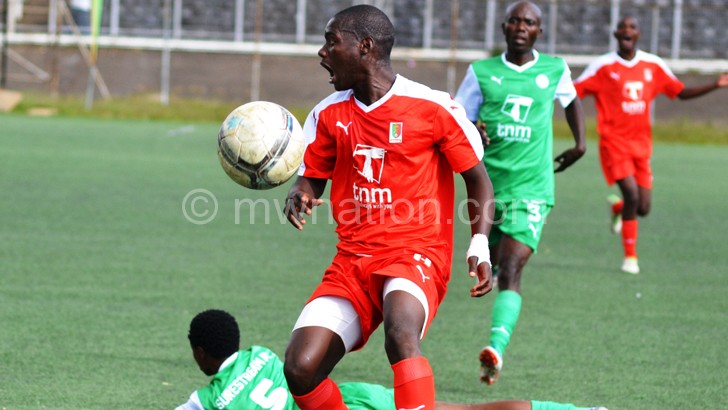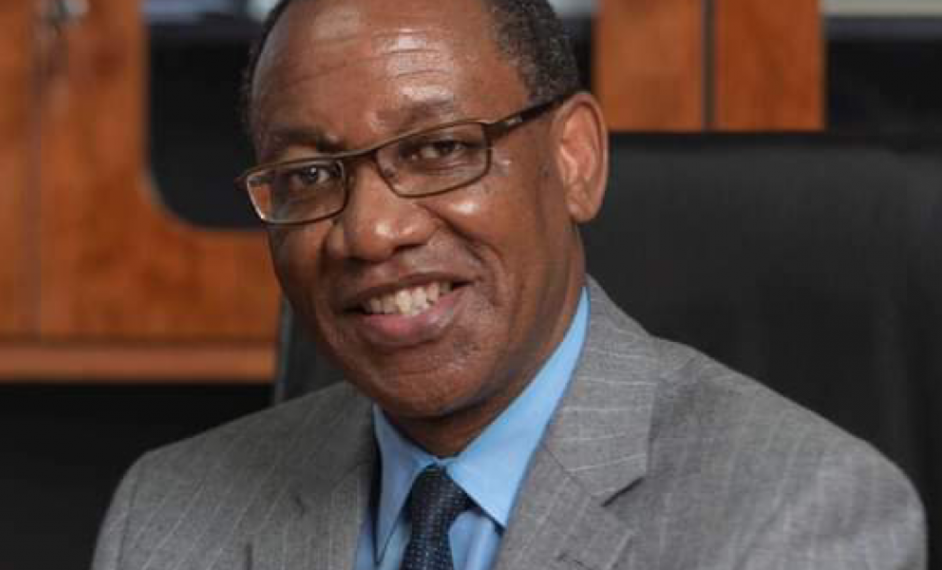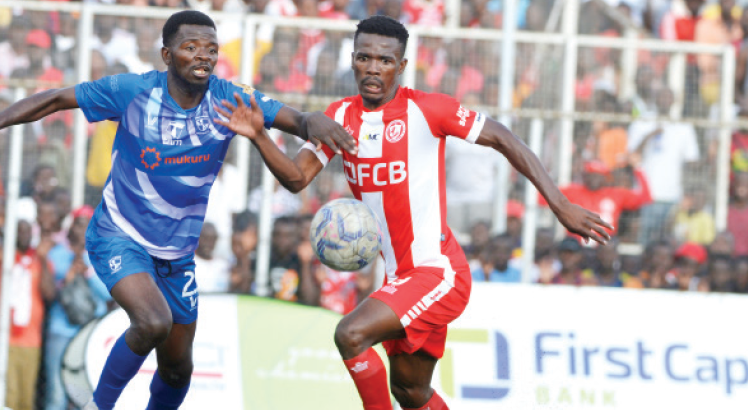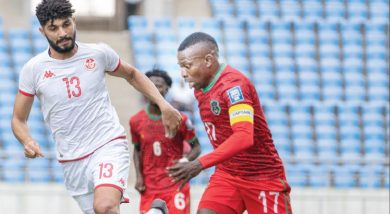Top scorers’ curse
As the Flames’ struggle to score continues, Nation on Sunday has established that for the last 14 years, TNM Super League top goalscorers have hardly been given chance to feature in national team’s competitive matches.
It has been observed that only three of the 13 Super League top goalscorers since 2001 season, had a feel of competitive events such as the World Cup, African Cup of Nations and the Cosafa Cup.
Heston Munthali, Chiukepo Msowoya and Gastin Simkonda, who won the top scorer’s accolades in 2001, 2007 and 2014 respectively, were the only ones that ever played competitive international games regularly for the Flames since 2001.

Super League match
Two-time awardees Aggrey Kanyenda (2005 and 2006) and Ishmael Thindwa (2011 and 2013) alongside one-time winner Ganizani Malunga (2002) hardly featured in competitive matches while Rodrick Douglas (2004), Diverson Mlozi (2008), Vincent Chinthenga (2012), Tony Chitsulo (2009) and joint top scorers Chikondi Mpulula and Luka Milanzi (2010) never donned the Flames’ jersey.
The current elite league top goal-poacher Innocent Bokosi of Red Lions, who has 11 goals so far, is the latest casualty in this trend as he did not even earn a call-up in the Ernest Mtawali-coached squad in preparation for the two-legged 2018 World Cup qualifier against Tanzania.
On Wednesday the Flames lost the first leg 0-2 away in Dar es Salaam.
Last season, it was the same story for Moyale Barracks forward Deus Nkutu, who was the leading scorer until virtually the last day when his team-mate Simkonda clinched the Golden Boot.
Nevertheless, Mtawali and immediate past Flames mentors Young Chimodzi and Eddington Ng’onamo argued that it is difficult for domestic league top-goal scorers to always make it into the squad because most of the times they are unable to transfer their club form to national duty.
“Club and international football are different. Some players impress at club level; scoring brilliant goals almost each and every game. However, as a coach, you get disappointed and frustrated when you see the same player failing to cope with pressure even during the national team training,” Chimodzi said.
While agreeing with Chimodzi, Ng’onamo said it is difficult to always consider the top scorers during squad selection in the absence of players’ scouts at club matches.
“For a coach to consider a player for national duty, you either have to first watch his display in a number of games or scouts do the job for you at club level. However, the absence of scouts complicate matters as you cannot afford to monitor all the players. One can be a top scorer, but you cannot risk featuring him without first making a proper assessment of his skills,” Ng’onamo said.
In spite of that, he claimed that he has not necessarily been keeping a blind eye on top scorers during his reign as he featured Gabadinho Mhango, when the Bloemfontein Celtic forward in South Africa was leading the Super League scorers’ chart with Big Bullets.
On Bokosi’s exclusion from the World Cup qualifiers against Tanzania, Mtawali, who called up the player for the 2017 African Cup of Nations qualifier against Swaziland but dropped him over a month ago, said the striker is yet to reach maturity level for national assignment.
“I called him up for the Swaziland game and he proved to be good. However, after assessing his performance as compared to that of experienced professional strikers, I realised he needed more time to mature for national duties; he is still learning the ropes as a striker and there was no need to hurry him,” Mtawali said.
But soccer pundits have warned that lack of fire-power upfront will continue to be a hindrance to Flames’ success in competitive matches unless national team coaches start embracing domestic league’s top goal scorers in their final squad.
Former Flames expatriate coach Kim Splidsboel wrote in response to a questionnaire on Wednesday: “normally, top scorers in the league should be part of the national team squad. I remember in my time as Flames coach, Heston Munthali, Victor Phiri and Muzipasi Mwangonde were the hot top scorers and I automatically included them in the squad.”
The Danish national, who led the Flames to Cosafa Cup finals for the first time in 2002 and won seven of 10 encounters during his reign between 2001 and 2002, added that top scorers bring confidence to the squad and by training with professional players in camp they learn more skills.
“I am not saying they should always be in the first line-up but they can at least feature as super substitutes. Players scoring goals will always be attractive to watch for spectators and for sponsors because they are important. There is a reason why everyone knows about Ronaldo, Messi, Zlatan, Neymar and Drogba.”
On his part, soccer analyst Charles Nyirenda described the neglecting of the league’s top netbusters in national team assignments as an anomaly that needs to be rectified forthwith.
“I have myself queried this habit several times. As a matter of common sense, I thought national team call ups are determined by performance of players at club level,” said the former Football Association of Malawi (FAM) chief executive officer.
“If a player is struggling at his club where he faces simpler challenges, how do you expect him to excel in the national team? As to why good and useful leading goal-grabbers are excluded from national duties, only the coaches and FAM would be better placed to shed more light on this anomaly.”
On his part, Bokosi said: “Only God knows why I was not called up. May be it is not my time yet to get to that level. Nevertheless, I am concentrating on improving my performance at club level.”
Big Bullets supporters’ chairperson Stone Mwamadi concurred with his Mighty Be Forward Wanderers counterpart Dines Chitsulo that it is surprising that it has become a habit for national team coaches to keep a blind eye on the league’s top scorers, who they believe can bring confidence among team-mates and the cheering fans.
“This trend should be stopped because it is killing the future of Malawi football. Regardless of which club a striker belongs to, it is imperative to give him chance for national duty,” Mwamadi said.





